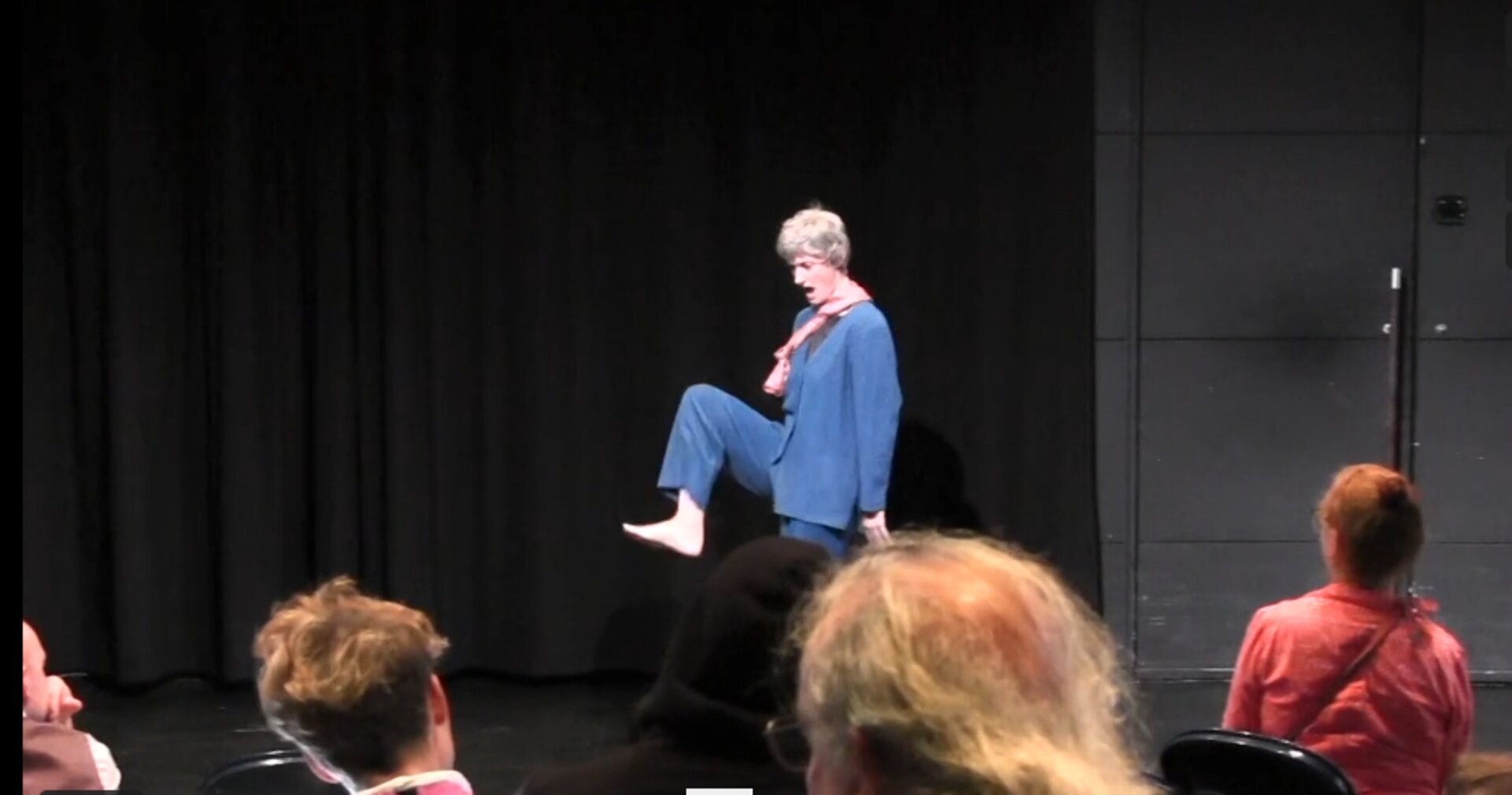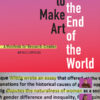This text is licensed under the Creative Commons license Attribution-NonCommercial-ShareAlike 4.0 International. The link to the original material is situated at the top right of the text.

Searching for the Fountain of Age: A Danced lecture
Susanne Martin
2018
Keywords: embodied knowledge, danced lecture, sharing knowledge through arts, aging in arts and culture
Threads: (Un)framing Knowledge, Learning, Cooperating with(in) arts and culture
Short description
To look and sense her research object, the “fountain of age” she divides it into 2 smaller fountains : the Fountain of Knowledge (talking) and the Fountain of Experience (dancing)
Personal appreciation
Both, the content and the methods are very interesting in her talk.
She mixes talking/lecturing and dancing while giving both almost the same time and thus place in this lecture.
Contribution to the "Who knows?" handbook
She introduces various methods:
To look and sense her research object, the “fountain of age”, she divides it into 2 smaller fountains: the Fountain of Knowledge (talking) and the Fountain of Experience (dancing). The first danced part is for her a way to introduce and help people to receive her body and her dance to be on the same page for what comes next. After developing her research object, a second longer danced part is like she puts it “a second bath in the fountain of experience”.
Through this sharing method she also introduces one of her research methods: “inviting her ghosts”, incarnating and experiencing another person, and more importantly questioning “what do I learn from having this person around?” Through dance she creates completely different individuals (older, smaller, other gender etc.) and experiences their way of moving, sensing their body and music and their relation to the others (the audience for example). She explains that she is actually researching around “habitus” and how biography gets in-scribed in the body – her method offers her the opportunity to learn through experiencing (kinesthetically).
She also questions aging and aging cultures in the arts and culture sector. As she explains youth is in most of European countries connected to potentiality and hope and age either to misery and loss or seniority and wisdom. What does it mean to be an “older” performing artist and how do these qualifications of young and old shift in different situations and environments? How does age define and legitimate (or marginalize) the work of artists, researchers, knowledge producers?
Material(s)
Two dancers draw on and transform an idea from the 17th century : salons. These gatherings were partly held for amusement and partly to increase knowledge of participants through conversation. Susanne Martin and her colleague experiment with improvisation as performance, choreography and research, invite guests and involve participants in the different parts of the evening.
Link to material #2 - Danced lectures around dance
Short videos to mediate different topics around dance, answering to the statement “I don’t understand dance”.
The videos contain talking/lecturing, dancing, sometimes homework and references to go further.
This idea to teach an object through the object seems interesting – in this tutorial it happens online (for the learner to watch only on a screen). Susanne Martin tries to expand the possibilities of learning experiences through inviting the learner to watch on a different device, in different settings etc. It shows that multiplying learning experiences is possible in various contexts, even if limited by watching on a screen.
Additional Information
| Location | Online Finland |
| Original language(s) | English |
| Existing translations | |
| Length | |
| Project runtime | - |
| Institution of affiliation | CARPA (Colloquium on Artistic Research in Performing Arts) |
| Sponsor(s) |
Additional Pictures
Creative Commons
Related Contributions

How to make Art at the End of the World: A Manifesto for Research-Creation
Natalie Loveless
2019
„[..] to do research – of any kind – is not simply to ask questions ; it is to let our curiosities drive us and allow them to ethically blind us ; it is to tell stories and to pay attention not only to which stories we are telling and how we are telling them, but how they, through their very forms are telling us.“ p. 24







